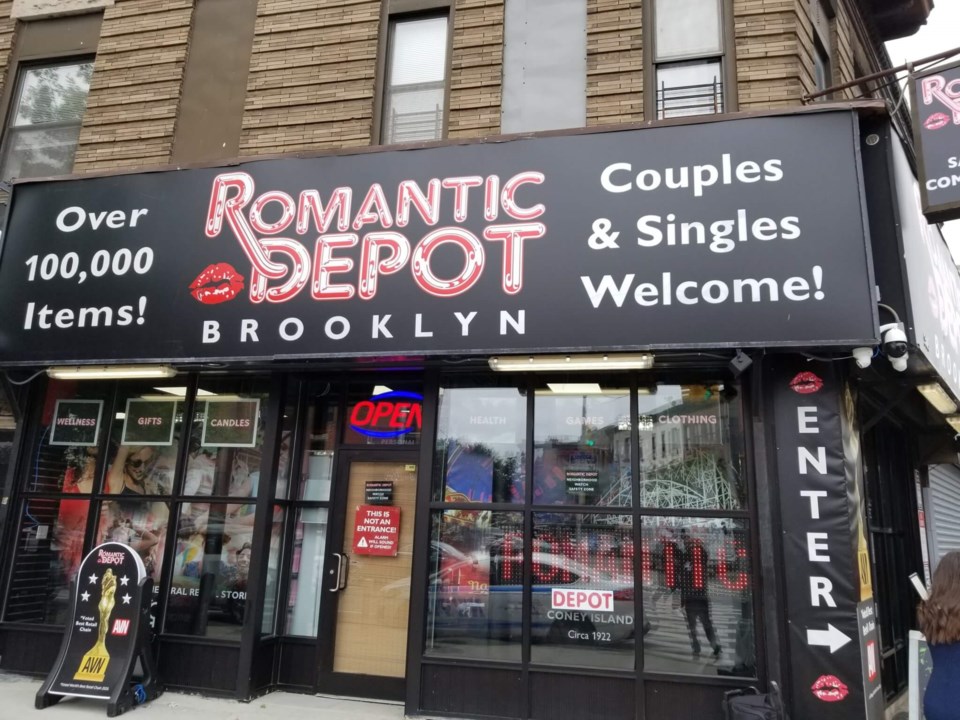Brooklyn's most controversial sex shop has finally reached a historic peace settlement with local residents, reports the Brooklyn Paper.
Romantic Depot, a sex shop located in Clinton Hill, was previously under fire from locals for its ill fitting spot within the neighborhood. However, after two months of negotiations all parties reported feeling pleased by the agreement.
With negotiations being presided over by the Rev. Kevin McCall, a local civil rights activist, the two sides announced the deal in front of the chain’s Brooklyn outlet on Fulton Street and Washington Avenue.
The business agreed to a number of changes to the store front, including the removal of their LED lighting, a Biggie Smalls mural and various explicit signage.
Signage promoting toys were replaced with those promoting wellness and safe space for LGBTQ+ Brooklynites. Most notably, the store will also meet with a committee of local representatives three times a year to ensure that the business remains within the set terms.
“We said that we wanted to make that the community is heard,” Rev. McCall stated at a press conference. “Well, we got together after two months of long mediation, and asked and demanded, and bickered and argued, and we went back-and-forth as any community would. And we found out that we can all be of one accord.”
The controversy arose after a group of locals argued at the Community Board and Precinct Council that the store posed an impressionable danger to local youngsters, and was possibly in violation of Giuliani-era zoning code that forbid adult establishments from operating near schools and churches. The city ultimately determined Romantic Depot to be in line with the zoning code, but angry neighbors still protested for its removal.
And while some community members still have some concerns, a great number of issues were addressed and the Romantic Depot has proven themselves to be willing to listen.
“That’s what we need businesses and developers to focus on in our community,” McCall said. “Not just come and build a store here or build any corporation here, and you don’t talk to the community first. That was our message from the beginning, coming to the community first, and then we can sit down and unite on this issue.”



.png;w=120;h=80;mode=crop)
